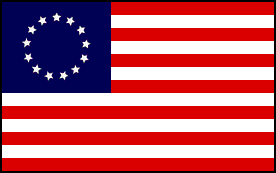Note from David:
We have invested the operations, resolve and course of our
beloved country in the minds and pens of our democratically elected
representatives. Politicians, who unfortunately, comprise an unreliable
body of individuals having no difficulty eluding the confines of
constitutional authority and mostly seeking power, fame, comfort and
wealth for themselves while holding the citizens as a private funding
source for their personal campaign contributions. The constitution's
preamble stating: ". . . secure the Blessings of Liberty to ourselves
and our Posterity, . . ." may not always be utmost in their
minds.
With that in mind, we open our page with a solemn and prophetic
quotation by Alexander Hamilton.
Alexander Hamilton: Federalist No. 25, December 21, 1787
"For it is a truth, which the experience of ages has
attested, that the people are always most in danger when the means of
injuring their rights are in the possession of those of whom they
entertain the least suspicion."
Tench Coxe: Delegate
to the Constitutional Convention
of 1787:
“Who are the militia? are they not ourselves. Is it feared, then, that
we shall turn our arms each man against his own bosom. Congress have no
power to disarm the militia. Their swords, and every other terrible
implement of the soldier, are the birth-right of an American
. . . The unlimited power of the sword is not in the hands either the
federal or state governments but, where I trust in God it will ever
remain, in the hands of the people.”
Richard Henry Lee: (1788, Initiator of the
Declaration of Independence, and member of the first Senate, which
passed the Bill of Rights)
“Whereas, to preserve liberty, it is essential that the whole body of
the people always possess arms, and be taught alike, especially when
young, how to use them; nor does it follow from this, that all
promiscuously must go into actual service on every occasion. The mind
that aims at a select militia, must be influenced by a truly
anti-republican principle; and when we see many men disposed to
practice upon it, whenever they can prevail, no wonder true republicans
are for carefully guarding against it.”
George Washington: (“Sentiments on a Peace
Establishment”, letter to
Alexander Hamilton; “The Writings of George Washington”)
“It may be laid down, as a primary position, and
the basis of our
system, that every citizen who enjoys the protection of a free
government…, but even of his personal services to the defence of it,
and consequently that the Citizens of America (with a few legal and
official exceptions) from 18 to 50 Years of Age should be borne on the
Militia Rolls, provided with uniform Arms, and so far accustomed to the
use of them, that the Total strength of the Country might be called
forth at Short Notice on any very interesting Emergency.”
Thomas Jefferson: Commonplace
Book (quoting
18th
century criminologist Cesare Beccaria), 1774-1776
"The laws that forbid the carrying of arms are laws of
such a nature. They disarm only those who are neither inclined nor
determined to commit crimes.... Such laws make things worse for the
assaulted and better for the assailants; they serve rather to encourage
than to prevent homicides, for an unarmed man may be attacked with
greater confidence than an armed man."
Noah Webster:
An
Examination of the Leading Principles of the Federal
Constitution, October 10, 1787
"Before a standing army can rule, the people must be disarmed, as they
are in almost every country in Europe. The supreme power in America
cannot enforce unjust laws by the sword; because the whole body of the
people are armed, and constitute a force superior to any band of
regular troops."
James Madison: Federalist
No. 46,
January 29, 1788
"Besides the advantage of being armed, which the
Americans possess over the people of almost every other nation, the
existence of subordinate governments, to which the people are attached,
and by which the militia officers are appointed, forms a barrier
against the enterprises of ambition, more insurmountable than any which
a simple government of any form can admit of."
Richard Henry Lee: Federal
Farmer No. 18,
January 25, 1788
"A militia when properly formed are in fact the people themselves…and
include, according to the past and general usuage of the states, all
men capable of bearing arms… "To preserve liberty, it is
essential that the whole body of the people always possess arms, and be
taught alike, especially when young, how to use them."
Patrick Henry: Speech
to the Virginia Ratifying Convention, June 5, 1778
"Guard with jealous attention the public liberty. Suspect everyone who
approaches that jewel. Unfortunately, nothing will preserve it but
downright force. Whenever you give up that force, you are
ruined.... The great object is that every man be armed. Everyone who is
able might have a gun."
St. George Tucker:
Blackstone's
Commentaries on the Laws of England, 1803
"This may be considered as the true palladium of liberty.... The right
of self defense is the first law of nature: in most governments it has
been the study of rulers to confine this right within the narrowest
limits possible. Wherever standing armies are kept up, and the right of
the people to keep and bear arms is, under any color or pretext
whatsoever, prohibited, liberty, if not already annihilated, is on the
brink of destruction."
Alexander Hamilton: Federalist No. 28, January
10, 1788
"If the
representatives of the people betray their
constituents, there is then no resource left but in the exertion of
that original right of self-defense which is paramount to all positive
forms of government, and which against the usurpations of the national
rulers, may be exerted with infinitely better prospect of success than
against those of the rulers of an individual state. In a single state,
if the persons intrusted with supreme power become usurpers, the
different parcels, subdivisions, or districts of which it consists,
having no distinct government in each, can take no regular measures for
defense. The citizens must rush tumultuously to arms, without concert,
without system, without resource; except in their courage and despair."
Alexander Hamilton,
Federalist No. 28, January
10, 1788
"If
circumstances should at any time oblige the
government to form an army of any magnitude that army can never be
formidable to the liberties of the people while there is a large body
of citizens, little, if at all, inferior to them in discipline and the
use of arms, who stand ready to defend their own rights and those of
their fellow-citizens. This appears to me the only substitute that can
be devised for a standing army, and the best possible security against
it, if it should exist."
Tench Coxe, Philadelphia Federal Gazette, June
18, 1789
"As civil
rulers, not having their duty to the people
before them, may attempt to tyrannize, and as the military forces which
must be occasionally raised to defend our country, might pervert their
power to the injury of their fellow citizens, the people are confirmed
by the article in their right to keep and bear their private arms."



